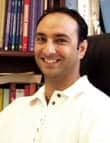According to a recent study, adults who have human immunodeficiency virus (HIV) have higher rates of hearing loss than those who do not. As reported in a research article published online in the December 26, 2014 edition of JAMA-Otolaryngology-Head & Neck Surgery, the study showed that adults with HIV were more likely to experience difficulty hearing both high and low tones. The hearing loss in HIV-positive adults in the study was evident regardless of the severity of a patient’s HIV disease progression, or the use of and adherence to HIV medications, which points to the disease itself as an underlying cause.
The pure-tone hearing thresholds of study participants—both HIV-positive men, and HIV-positive women—were reportedly evaluated. Pure-tone air conduction thresholds were collected in a sound-treated room for each ear at frequencies from 250 through 8000 Hz. According to the study article, linear mixed regression models tested the effect of HIV on hearing after adjustment for age, sex, race, and noise exposure history.
Researchers report that each participant also completed a hearing-related questionnaire, allowing for the collection of data on participants’ history of taking and adherence to HIV treatments to determine if the medications contributed to the hearing loss. Researchers also measured participants’ white blood cell count and viral load (the amount of HIV in the blood) to determine the severity of disease progression.
The HIV-positive men and women had trouble hearing both the low tones and the high tones, the researchers report. While some hearing loss at higher frequencies is commonly seen among middle-aged adults, the HIV-positive men and women in the study showed some difficulty hearing at lower frequencies as well, negatively impacting their communication.
Other studies have found that children who were exposed to HIV in the womb are at increased risk of hearing loss by age 16. Additionally, previous studies in adults had found a link between hearing loss and diabetes, which suggests that some hearing loss may stem from chronic, systemic diseases.
“Given the pattern of hearing loss among middle-aged, HIV-positive men and women, and adults with diabetes, it appears that chronic conditions like HIV and diabetes in and of themselves have a systemic effect that impacts hearing loss,” said Howard Hoffman, MA, an NIDCD epidemiologist and a co-author of the study. “The underlying mechanisms of that hearing loss are not clearly understood, and we plan to look at that relationship in future studies.”
Peter Torre, PhD, an associate professor at San Diego State University, was the lead author of the current study and the earlier NIH-supported study on children. The new study included collaborators from NIH’s National Institute on Deafness and Other Communication Disorders (NIDCD), Johns Hopkins University, and Georgetown University.
This study was funded by the NIDCD and the National Institute of Allergy and Infectious Diseases (NIAID), the National Cancer Institute, and the Eunice Kennedy Shriver National Institute of Child Health and Human Development.
Source: JAMA-Otolaryngology-Head & Neck Surgery, and the NIDCD




